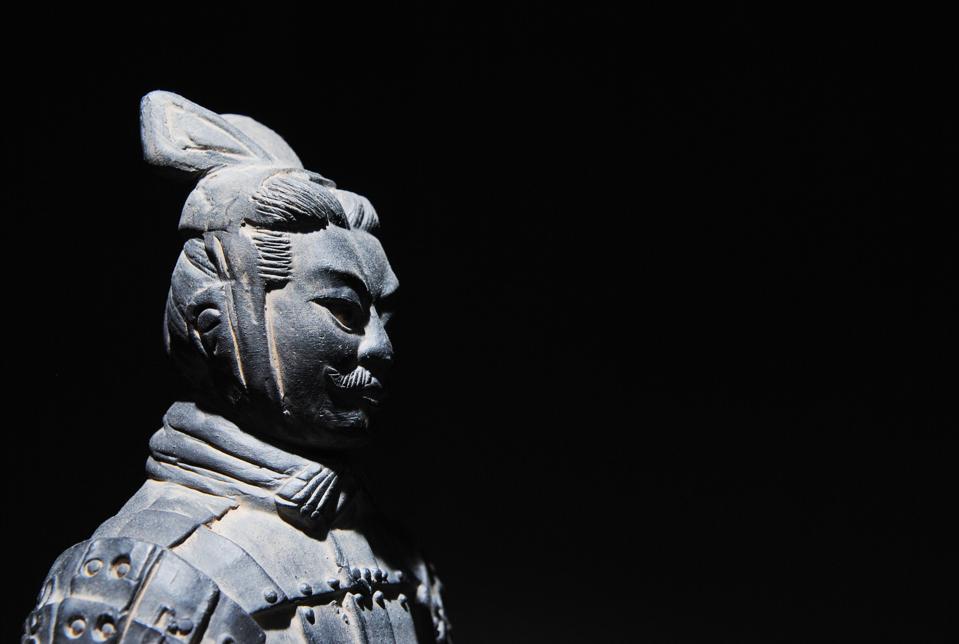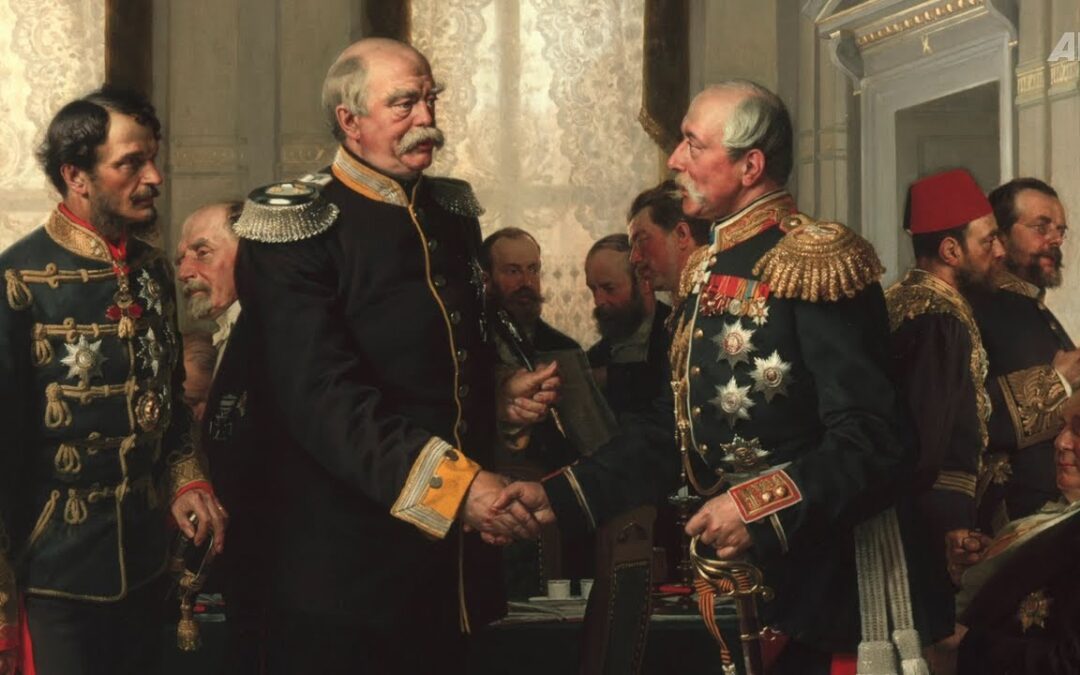Miyamoto Musashi (1584-1645), the legendary Japanese samurai, is an iconic figure in the history of martial arts and strategic philosophy. His masterpiece, The Book of Five Rings (Go Rin No Sho), written in 1645, is a classic treatise on strategy, tactics, and philosophy that transcends the realm of combat to offer lessons applicable to various aspects of life, including negotiation. This article explores Musashi’s teachings in The Book of Five Rings and their relevance to the art of negotiation, highlighting how his principles can be used to achieve success in situations of conflict and collaboration.
Historical and Philosophical Context of The Book of Five Rings:
Miyamoto Musashi was an undefeated warrior in more than 60 duels, a master swordsman, and a philosopher who dedicated his final years to reflecting on the nature of strategy and life.
The Book of Five Rings is the result of these reflections, a manual that divides strategy into five “rings” or elements: Earth, Water, Fire, Wind, and Void. Each of these elements represents a different aspect of strategy, from fundamentals to absolute mastery.
Although the book was originally written for warriors, its teachings have universal application. Musashi emphasizes the importance of adaptability, clear perception of reality, and deep understanding of the opponent—principles equally relevant in the field of negotiation.
The Five Rings and Their Application to Negotiation:
The Ring of Earth: The Fundamentals of Strategy:
In this ring, Musashi establishes the basic principles of strategy, comparing them to the solid ground on which everything is built. In the context of negotiation, this involves understanding the fundamentals of the process: knowing the parties involved, their interests, strengths and weaknesses, and the environment in which the negotiation takes place.
Practical Application: Before entering a negotiation, it is essential to prepare thoroughly. This includes researching the counterpart, identifying their needs and objectives, and setting clear goals. Musashi teaches that the foundation of any strategy is a deep knowledge of the terrain, both literal and metaphorical.
The Ring of Water: Adaptability and Fluidity:
Water is a symbol of adaptability and fluidity. Musashi emphasizes the importance of being flexible and able to adjust to changing circumstances. In negotiation, this means being prepared to modify the approach according to the dynamics of the dialogue and the responses of the counterpart.
Practical Application: A good negotiator must be like water, able to flow around obstacles and find new paths toward the goal. This involves active listening, identifying points of agreement and disagreement, and being willing to adjust proposals to reach a mutually beneficial outcome.
The Ring of Fire: Energy and Decision:
Fire represents energy, passion, and decisiveness. Musashi teaches that once the terrain is understood and the strategy adapted, it is crucial to act with determination and speed. In negotiation, this translates into the ability to make firm decisions and execute plans with conviction.
Practical Application: At key moments in a negotiation, it is necessary to act decisively. This may involve making a strong offer, closing a deal, or, in some cases, withdrawing if conditions are unfavorable. The key is to act with confidence and clarity, without hesitation.
The Ring of Wind: Perception and Understanding of the Opponent:
Wind symbolizes perception and understanding of the opponent. Musashi insists on the importance of studying the adversary, their tactics, and mindset. In negotiation, this means understanding the motivations, fears, and aspirations of the counterpart.
Practical Application: To negotiate successfully, it is essential to “read” the other party. This involves observing their body language, listening carefully to their words, and detecting non-verbal signals. Musashi teaches that true strategy consists of anticipating the opponent’s moves and staying one step ahead.
The Ring of Void: Mastery and Intuition:
Void represents absolute mastery, the state in which the strategist operates intuitively and effortlessly. At this level, strategy becomes a natural extension of the self. In negotiation, this means reaching a skill level where decisions arise spontaneously and effectively.
Practical Application: The most successful negotiators are those who have internalized the principles of strategy to the point where they can apply them intuitively. This requires not only experience but also a deep understanding of human nature and the dynamics of conflict.
Key Musashi Principles Applied to Negotiation:
Know Your Opponent:
Musashi emphasizes the importance of studying the adversary to anticipate their moves. In negotiation, this means researching the counterpart, understanding their interests, and preparing for possible objections.
Maintain Calm and Mental Clarity:
Serenity is an essential quality for the strategist. Musashi teaches that mental clarity allows one to make sound decisions even under pressure. In negotiation, this means maintaining composure and avoiding emotional reactions.
Be Flexible and Adaptable:
Rigidity is a flaw in strategy. Musashi compares the strategist to water, which adapts to the shape of the container holding it. In negotiation, this means being willing to modify the approach according to circumstances.
Act with Decision:
Indecision can be fatal in combat and negotiation. Musashi teaches that once a decision is made, it is crucial to act with determination. In negotiation, this means closing deals firmly and confidently.
Seek Mastery:
True strategy is not limited to specific techniques but involves a deep understanding of the underlying principles. In negotiation, this means going beyond tactics and developing an intuitive understanding of human dynamics.
A First Look at Musashi:
Miyamoto Musashi’s The Book of Five Rings is a timeless work offering valuable lessons not only for warriors but also for modern negotiators. His teachings on preparation, adaptability, decision, and understanding the opponent are powerful tools to achieve success in any negotiation situation. By applying these principles, negotiators can develop a solid strategy, maintain calm under pressure, and achieve mutually beneficial outcomes.
In an increasingly complex and competitive world, Musashi’s lessons remain relevant, reminding us that true strategy is not just about winning, but about understanding and mastering the art of human interaction.
Now let’s see a Practical Application of the Five Rings in Negotiation:
The Ring of Earth: Preparation and Knowledge of the Terrain:
Musashi compares this ring to solid ground, the foundation on which all strategy is built. In negotiation, this translates to the preparation phase, where information is gathered and the fundamentals for dialogue are established.
Practical Example: Imagine you are negotiating a contract with a supplier. Before the meeting, you research the company, analyze their prices, history, and needs. You also define clear objectives: reduce costs, improve delivery times, or secure favorable payment terms. This preparation allows you to enter the negotiation with a solid foundation and a clear understanding of the “terrain.”
Modern Tip: Use tools such as SWOT analysis (Strengths, Weaknesses, Opportunities, Threats) to evaluate both your position and that of the counterpart. This will help you identify areas of advantage and points of vulnerability.
The Ring of Water: Adaptability and Fluidity:
Water flows and adapts to any shape, and Musashi teaches that a strategist must be equally flexible. In negotiation, this means being willing to adjust your approach according to the other party’s responses.
Practical Example: During a salary negotiation, your employer rejects your initial raise request. Instead of insisting on the same amount, you adapt your strategy: proposing a gradual increase tied to specific goals or additional benefits like extra vacation days. This flexibility shows willingness to dialogue and increases the chances of reaching an agreement.
Modern Tip: Practice active listening and use techniques like brainstorming to generate creative options that satisfy both parties.
The Ring of Fire: Energy and Decision:
Fire symbolizes decisive action and focused energy. Musashi emphasizes that once the terrain has been evaluated and the strategy adapted, it is crucial to act with determination.
Practical Example: In a business negotiation, after several rounds of discussion, you decide to present a final offer that includes a significant discount but with clear conditions (for example, a minimum order). This proposal, presented with confidence and clarity, can be the necessary push to close the deal.
Modern Tip: Learn to recognize the right moment to act. Game theory suggests that, in certain situations such as zero-sum negotiations, quick and firm decisions can be more effective than indecision.
The Ring of Wind: Perception and Understanding of the Opponent
Wind represents the ability to perceive and understand the opponent. Musashi teaches that a strategist must “read” the adversary to anticipate their moves.
Practical Example: In an international negotiation, you notice your counterpart avoids discussing certain sensitive topics, such as delivery deadlines. By perceiving this reluctance, you deduce they might be facing logistical problems. You use this information to propose alternative solutions, like partial shipments, that ease their burden and strengthen your position.
Modern Tip: Develop your emotional intelligence to identify nonverbal and emotional signals during negotiation. This will allow you to adjust your strategy in real time.
The Ring of Void: Mastery and Intuition:
Void symbolizes absolute mastery, where strategy becomes a natural extension of the self. In negotiation, this means reaching a skill level where decisions arise intuitively and effectively.
Practical Example: An experienced negotiator, after years of practice, can “feel” when it is time to push for an agreement and when it is better to step back. This intuition is not magical but the result of a deep understanding of negotiation principles and human dynamics.
Modern Tip: Mastery in negotiation is achieved through experience and reflection. Keep a negotiation journal to analyze your successes and failures, and learn from every interaction.
The Integration of the Great Musashi’s Philosophy with Modern Approaches:
Nash Game Theory:
Game theory, which studies strategic interactions between individuals, complements Musashi’s teachings. For example, the concept of “Nash equilibrium” (where no party can improve their position unilaterally) reflects Musashi’s idea of seeking a deep understanding of the opponent and the environment.
The Theory of Emotional Intelligence:
Daniel Goleman, a pioneer in the study of emotional intelligence, emphasizes the importance of self-awareness, empathy, and emotion management in human interactions. These principles align with Musashi’s focus on mental clarity and understanding the opponent. Clearly, few things have been newly invented…
Timeless Lessons for Modern Negotiators:
The Importance of Preparation:
As taught by the Ring of Earth, a successful negotiation begins with solid preparation. This includes researching the counterpart, defining clear objectives, and anticipating possible obstacles.
Flexibility and Creativity:
The Ring of Water reminds us that rigidity is the enemy of success. A good negotiator must be able to adapt to circumstances and find creative solutions.
Decision and Confidence:
The Ring of Fire highlights the importance of acting with decision and confidence. At key moments, indecision can be more harmful than an imperfect decision.
Understanding the Opponent:
The Ring of Wind teaches that true strategy consists of understanding the opponent. This involves not only listening to their words but also interpreting their motivations and emotions.
Mastery and Intuition:
The Ring of Void represents the highest skill level, where strategy becomes second nature. This level of mastery is reached through experience, reflection, and continuous learning.
An Overview of Musashi’s Teachings:
The teachings of Miyamoto Musashi in The Book of Five Rings offer a timeless strategic framework that can be applied not only to combat but also to negotiation. His principles of preparation, adaptability, decision, understanding the opponent, and mastery provide valuable tools to navigate complex situations and achieve successful outcomes.
In a world where negotiation is an essential skill in business, politics, and personal life, Musashi’s lessons remain as relevant as they were in feudal Japan. By integrating these principles with modern approaches such as game theory and emotional intelligence, negotiators can develop a solid and effective strategy that allows them to reach their goals while maintaining constructive relationships.






0 Comments